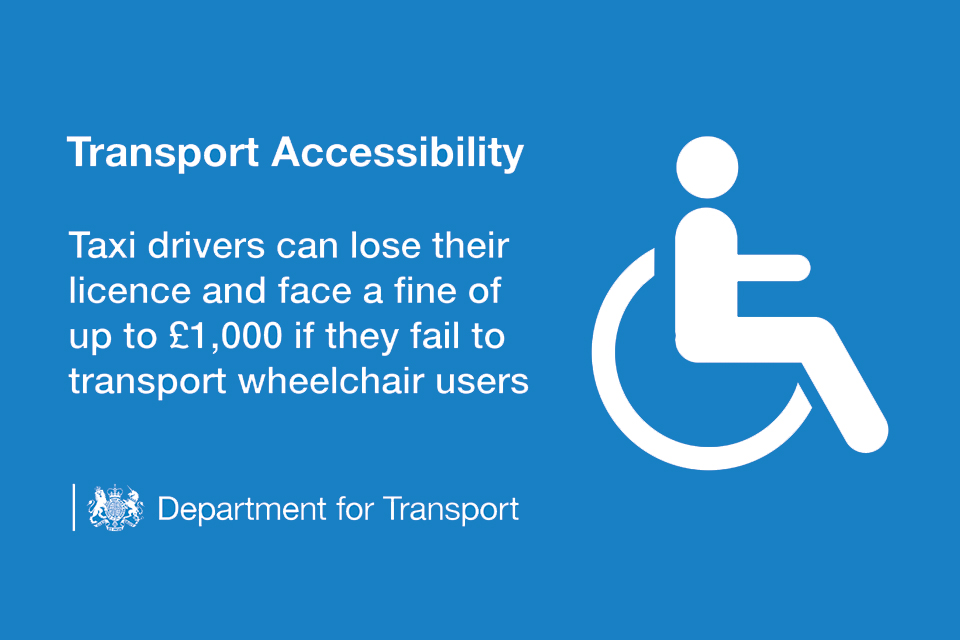Department for Transport
|
|
Law change provides equal treatment for disabled taxi users
Law change makes it illegal for taxi drivers to discriminate against wheelchair users.
Taxi drivers face a fine of up to £1,000 if they refuse to transport wheelchair users or attempt to charge them extra, in a change to the law that came into force yesterday (6 April 2017).
Taxi and private hire vehicle drivers will be obliged by law to:
- transport wheelchair users in their wheelchair
- provide passengers in wheelchairs with appropriate assistance
- charge wheelchair users the same as non-wheelchair users
Transport Minister Andrew Jones said:
We are building a country that works for everyone, and part of that is ensuring disabled people have the same access to services and opportunities as anyone else – including when it comes to travel. People who use wheelchairs are often heavily reliant on taxis and private hire vehicles and this change to the law will mean fair and equal treatment for all.
The changes apply to England, Wales and Scotland affecting vehicles that are designated as wheelchair accessible and apply to both taxis and private hire vehicles. All taxis in London and a significant number in most major urban centres are wheelchair accessible.
Drivers found to be discriminating against wheelchair users face fines of up to £1,000 as part of provisions being enacted from the Equality Act. Drivers may also face having their taxi or Private Hire Vehicle (PHV) licence suspended or revoked by their licencing authority. Drivers unable to provide assistance for medical reasons will be able to apply to their licensing authority for an exemption from the new requirements.

Robert Meadowcroft, Chief Executive of Muscular Dystrophy UK, yesterday said:
Today’s change in legislation is positive news, as we know that disabled people often have to rely on taxis where accessible public transport isn’t an option.
Taxi drivers can provide a vital service in getting wheelchair users from A to B so they are able to maintain their livelihoods and play an active part in society. Today creates a level playing field for both drivers and passengers.
The law now makes clear the rights for wheelchair users and the responsibilities of taxi drivers, including the penalties that will occur if they aren’t observed. Wheelchair users are frequent customers of taxi services, so instead of being apprehensive of these new rules, taxi companies should promote their accessibility credentials.
The new requirements complement those already in place to prevent discrimination against users of assistance dogs and underline the government’s wide-ranging commitment to supporting transport networks which work for everyone.
The government will be consulting on a draft Accessibility Action Plan later this year, which will seek to address the barriers faced by disabled people in accessing all modes of public transport.
Roads media enquiries
Press enquiries 020 7944 3021
Out of hours 020 7944 4292
Switchboard 0300 330 3000


.png)